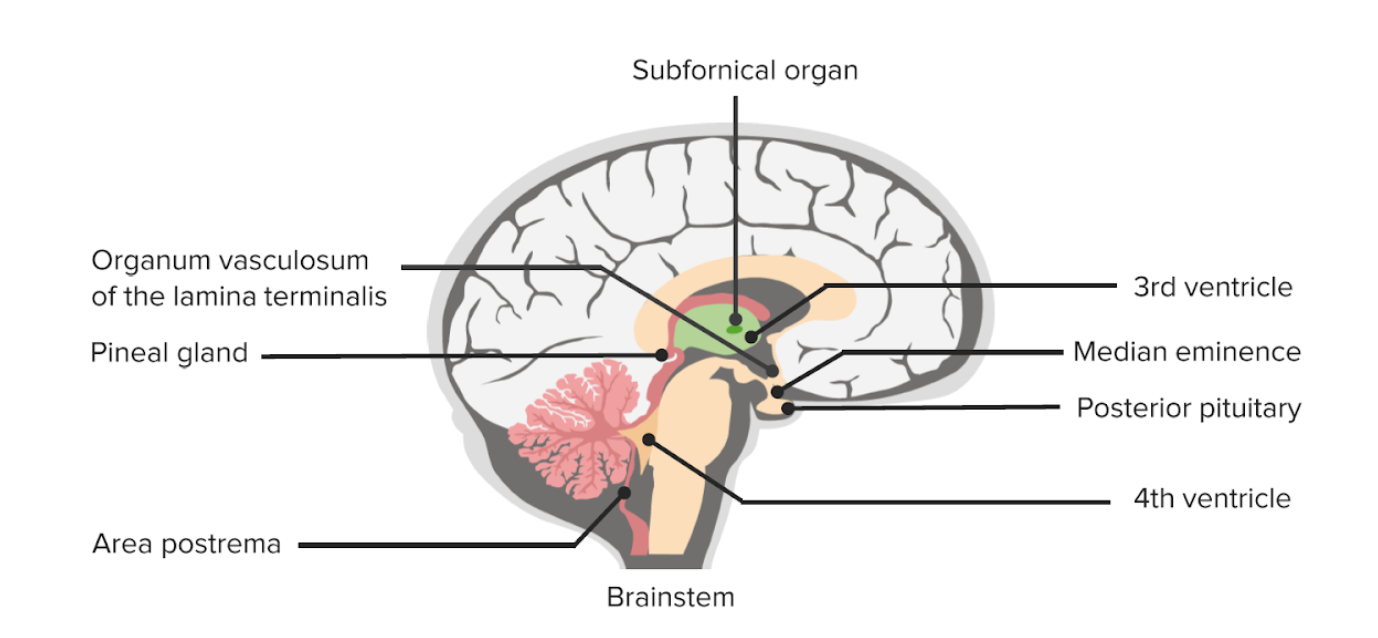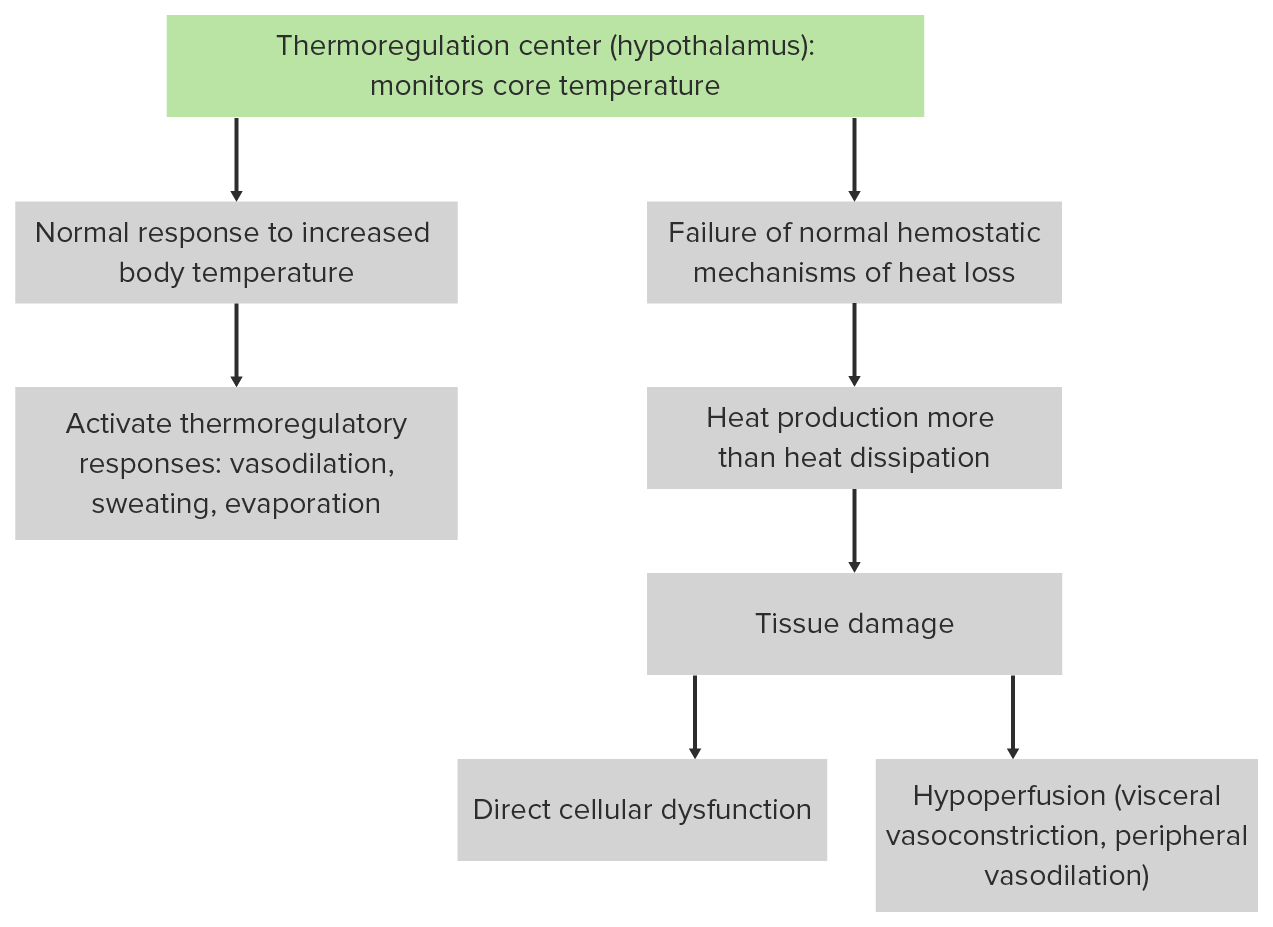Playlist
Show Playlist
Hide Playlist
Heat Loss Mechanisms
-
Emergency Medicine Cold Illness.pdf
-
Download Lecture Overview
00:01 Hello. In this lecture, we’re gonna talk about cold related emergencies. 00:05 Specifically, hypothermia and frost bite. 00:08 So under normal circumstances, heat production in the body is equal to heat dissipation in the body and that allows us to maintain a normal constant body temperature. 00:21 However, when our heat production is less than our heat dissipation or we’re losing more heat than we’re making, that allows our core temperature to fall and that’s the physiologic basis of hypothermia. 00:33 When we become hypothermic, we have a number of physiologic responses which are designed to help us bring our core temperatures back up and maintain heat. 00:42 One is peripheral vasoconstriction and that allows us to reduce radiant heat losses. 00:47 So we keep more heat in the core of our body and radiate less out into the world. 00:52 Two is shivering. 00:54 So shivering is skeletal muscle activity that allows us to increase our heat production. 00:59 And three is non-shivering thermogenesis. 01:02 So there’s a number of metabolic processes the body will engage in to produce heat without skeletal muscle activity. 01:09 One important thing to remember is that humans have no capacity whatsoever for long term adaptation to the cold. 01:16 Humans who live in hot climates actually can make physiologic adaptations to function better in the heat but fundamentally, humans are tropical animals. 01:26 We’re not meant to be in cold environments and we do not have the ability to physiologically adapt in order to increase our heat production. 01:36 So there’s several mechanisms of heat loss that contribute to hypothermia. 01:41 One is conduction and conduction is loss of heat from the skin to the environment, and it’s greatly increased in water. 01:49 So air is a pretty good insulator. 01:52 We don’t lose a lot of heat to the environment in the air but when we get wet, it significantly increases our risk of conductive heat loss. 02:00 Convection is loss of heat to circulating air. 02:05 And convection is very heavily dependent on wind speed. 02:08 This is why there’s such a thing as a wind chill. 02:10 Right? So when the wind is blowing harder, it feels colder and we actually lose more body heat in that setting. 02:17 We can reduce this by wearing insulating clothing and that’s actually the basis of insulating clothing leg down. 02:24 It traps air close to the body and protects you from circulating air out in the environment. 02:31 Radiation is the primary means by which we lose heat in cold settings. 02:38 So radiant heat loss is also reduced by wearing insulating clothing and in particular, you can prevent radiant heat loss by covering all the exposed parts of your body. 02:50 So your head, your hands, etc. 02:52 That can help you decrease your radiant heat loss. 02:56 And then lastly is evaporation. 02:58 Now, evaporative heat loss is not really important in cold settings unless you’re wet. 03:04 In which case, it becomes a major mechanism for heat loss to be aware of.
About the Lecture
The lecture Heat Loss Mechanisms by Julianna Jung, MD, FACEP is from the course Toxicologic and Environmental Emergencies.
Included Quiz Questions
What is the purpose of shivering?
- To increase heat production
- To vasoconstrict peripheral vessels
- To reduce radiant heat loss
- To decrease core temperature
- To induce the hypothalamus to increase the set point temperature
What is the heat loss mechanism that is greatly increased in water?
- Conduction
- Convection
- Radiation
- Evaporation
- Transference
Customer reviews
5,0 of 5 stars
| 5 Stars |
|
5 |
| 4 Stars |
|
0 |
| 3 Stars |
|
0 |
| 2 Stars |
|
0 |
| 1 Star |
|
0 |





